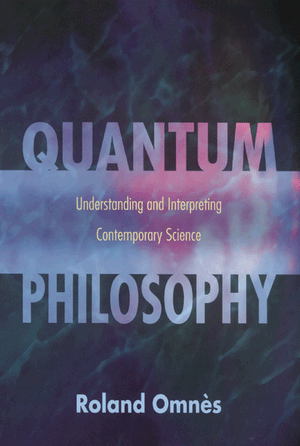Omnès emphasises throughout that no new principles, other than those
described when quantum mechanics was developed in the 1920s, are needed.
Moreover, some additional principles which seemed to be required then
(such as wavefunction collapse, or its slightly more formal sister, wavefunction reduction) are no longer needed. Classical behaviour can now be recovered in a system described entirely by a single, unitary[disambiguation needed] (time-reversible) wavefunction.
The mathematical developments which allowed this progress have taken place in two fields: quantum decoherence and the consistent histories approach to quantum mechanics.
The consistent histories approach makes mathematically explicit which
sets of classical questions can be consistently asked of a single
quantum system, and, conversely, which sets of questions are
fundamentally inconsistent, and thus meaningless when asked together. We
can therefore demonstrate formally why it is that the questions which Einstein, Podolsky and Rosen
assumed could be asked together, of a single quantum system, simply
cannot be asked together. On the other hand, we can demonstrate that
classical, logical reasoning often does apply, even to quantum
experiments – but we can now be mathematically exact about the limits of
classical logic.
Quantum decoherence, on the other hand (in combination with the
consistent histories approach), recovers classical behaviour at the
macroscopic level. The formal mathematics of this approach allows us to
demonstrate, finally, that is impossible (or rather, massively
improbable) for a macroscopic Schrödinger's cat
to exist for longer than a minuscule time (related to the macroscopic
energy dissipation time by a factor involving the square of Planck's constant)
in a quantum superposition of its |alive> and |dead> states. Even
for a cat otherwise isolated from the rest of the Universe, and even with no observer present,
there are so many unknowns in the quantum state of the whole cat, that
the relevant mathematics determine that only the normally observed
classical states of the cat are at all probable, except over the very
shortest of timescales. This reasoning is developed formally within measurement theory, and applies to any macroscopic, non-super cooled measuring device, whether or not there is an observer to watch it.
Download
Download




0 comments:
Post a Comment